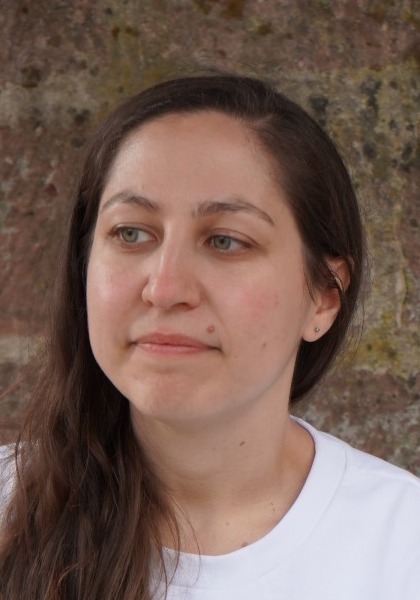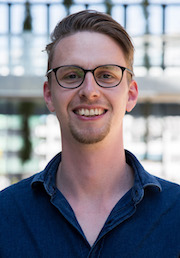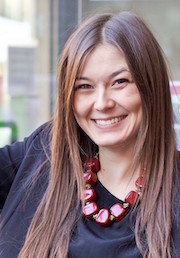Prof. Tobias Brosch is Full Professor at the University of Geneva, where he holds the chair in Psychology of Sustainable Development. In his research, Tobias is interested in understanding how cognitive, affective, and social processes influence our environmentally relevant choices, and how this knowledge can be used to promote sustainable decisions and behaviors. His research has been published in more than 90 peer-reviewed articles in journals such as PNAS, Nature Energy, Nature Climate Change, and Nature Human Behaviour. He is associate editor for the Journal of Environmental Psychology, and he actively engages with policy makers in the sustainability domain to bring insights from behavioral science into their work and to promote science-policy collaborations. He is lead author for the AR7 report of the Intergovernmental Panel on Climate Change (IPCC) and member of ProClim, the Forum for Climate and Global change of the Swiss Academy of Sciences. He moreover acts as representative of the American Psychological Association (APA), the European Federation of Psychologists' Associations (EFPA), and the Swiss Federation of Psychologists (SFP) to the United Nations in Geneva, and regularly consults for institutions such as the World Economic Forum, the Swiss Federal Office of Energy, or the Office of the High Commissioner for Human Rights.
Dr. Mario Herberz is a passionate cognitive psychologist with a special interest in the application of insights from the behavioral sciences to a wide range of societal challenges. He received his Bachelor and Master degree from the University of Heidelberg before completing his PhD in the Consumer Decision and Sustainable Behavior Lab in 2022. His PhD research, which advances a psychological perspective on individuals’ preferences for electric vehicles, got published in renown journals such as Nature Energy and Journal of Environmental Psychology. Mario has been peer-reviewing for a number of scientific journals, such as the Journal of Behavioral and Experimental Economics, Ecological Economics, Journal of Environmental Psychology, and American Psychologist. Since the beginning of his academic career, building bridges between research and policy making has been one of his main interests, for example by consulting public institutions, such as the Swiss Federal Office for Energy, the State of Geneva, the local University Hospital, and the International Labour Organisation. He has moreover been engaging in public outreach by contributing to the In-Mind magazine and by participating in the science communication contest My Thesis in 180 seconds. He fluently speaks French, English, and German.
heuristics and biases, decision-making, behavioral public policy

Désirée Schmid joined the Consumer Decision and Sustainable Behavior Lab as a PhD student in September 2022. She completed the Bachelor in psychology (2020) at the University of Pécs in Hungary and the Research Master in Behavioral and Social Sciences (2022), with a specialization in environmental psychology, at the University of Groningen in the Netherlands. For her PhD, she is supervised by Dr. Nadja Contzen from the aquatic research institute Eawag and Prof. Dr. Tobias Brosch from the University Geneva. Her workplace is at Eawag, Dübendorf in the environmental social science department, more specifically in the environmental health psychology group. Her PhD project named REVALUE is concerned with the value approach in environmental psychology. Research in environmental psychology applies personal values to explain environmentally relevant beliefs, attitudes, behaviors and decisions as well as to develop impactful interventions. However, the values considered today are relatively limited and the value framework is not comprehensive enough to research newer topics such as climate change adaptation and individual health concerns. The REVALUE project aims to address shortcomings of the current value approach in environmental psychology by developing and testing a refined value typology and new measurement instruments.
personal values, value typology, value instrument, environmental health psychology

Morris Krainz was born and raised in Vienna, where he studied psychology. After obtaining his master’s degree he worked as a research assistant and lecturer at the University of Vienna. He then joined the Consumer Decision and Sustainable Behavior Lab in May 2023 as a PhD candidate under the supervision of Prof. Tobias Brosch and Prof. Evelina Trutnevyte. Morris is a member of the SWEET PATHFNDR project, where he investigates attitudes and public acceptance of renewable energy policies. His research aims to understand the evolution of these attitudes over time and in response to information. Focusing on refining informed citizen panels, Morris seeks to enhance public understanding of the impacts of renewable energy policies and associated technologies. The project's ultimate goal is to identify barriers and facilitators of public support towards renewable energy policies. Previously, his work in Vienna included projects on anthropomorphism, biodegradable plastics and the effects of blue spaces on health and well-being. In his free time, Morris enjoys football, running, hiking, and relaxing by the lake.
cognition, emotion, climate mitigation policies, public acceptance
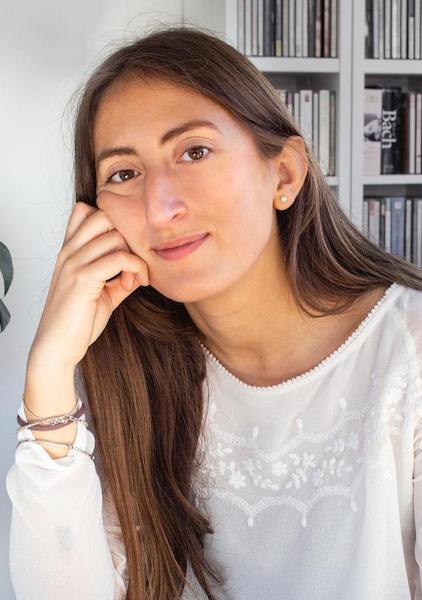
After studying in Peru, France and Canada, Izïa Vallaeys obtained her Master degree in Applied Psychology, with a focus on affective sciences and environmental behavior, at the University of Geneva in 2021. Since then, she has worked in two United Nations agencies (UNITAR and International Trade Center) as a project coordinator, where she was able to develop and implement interventions and training linked to the environment, human health and women's rights. Having joined the CDSB lab in October 2023, her current research focuses on the concept of Warm Glow : the positive emotions that can arise from pro-environmental behavior, and how to start a virtuous circle. Alongside this, at the Swiss Center for Affective Sciences, she is running an impact study in collaboration with the HUG on visual art and how beautiful environments can improve the well-being of patients and staff in a psychiatric center. When not in the lab, Izïa’s interest on positive emotions and art continues, as she does theatre, improv and dance.
international policy & interventions, positive emotions, warm glow, well-being

Manon Gouiran joined the Consumer Decision and Sustainable Behavior Lab in January 2025 as a PhD candidate under the supervision of Prof. Tobias Brosch and Prof. Corinne Moser (FHNW). For the ENERGYPULSE project, she investigates Swiss citizen's cognitive and affective perceptions of energy prices, supply risks, and climate change. We are interested in how these perceptions change over time and affect decisions and environmental behaviors. The project will involve a communication intervention, resulting in a large-scale informed citizen panel. We will give neutral information to a portion of Swiss citizens and our research project will allow us to see how being informed affects perceptions and in turn, decisions and behaviors. In her previous work, she focused on moral decision-making, conceptions of critical thinking, and productivity. Outside of work, Manon enjoys archery and baking.
cognition, emotion, decision making, social norms
Dr. Lea Nahon is a Swiss National Science Foundation Postdoctoral Fellow and social cognition researcher. With her background in social and cognitive psychology, she studies how people perceive, construct, and experience their social reality. The focus of Dr. Nahon’s research thereby lies in understanding why people believe and spread misinformation about politics, medicine (vaccines), and climate change. She also works on ways to counter people’s believe in misinformation. Currently, she investigates interactions between people and artificial intelligence (AI) in fighting misinformation. Dr. Nahon completed her master’s degree in social, economic, and decision psychology at the University of Basel in Switzerland. She then earned her doctoral degree in social cognition at the University of Marburg in Germany. After her PhD, she was a Postdoctoral Fellow in the Social Cognition Lab at the University of Texas at Austin in the United States before joining the Consumer Decision and Sustainable Behavior Lab at the University of Geneva.
misinformation, generative artificial intelligence (AI)

Laetitia Vicari achieved her bachelor’s and master’s degrees in psychology at the University of Geneva. Passionate about environmental advocacy, she applied to the Biodiversity Valuation and Engagement research project and joined the CDSB Lab as a Ph.D. student in December 2025. Her research focuses on public engagement with biodiversity, addressing the research gap in the comprehensive understanding of the psychological factors that shape how individuals in Switzerland value and engage with biodiversity. Through her investigation of cognitive, affective and social drivers, she collaborates with key stakeholders in biodiversity conservation of the Canton of Geneva to co-create communication strategies and immersive interventions. These context-sensitive, evidence-based interventions aim to achieve behavioral change and policy support for biodiversity conservation by increasing knowledge about biodiversity, fostering emotional and social engagement of the Swiss population and providing opportunities for action. After spending a day in the lab, Laetitia enjoys pole dancing and bouldering to unwind.
behavioral change, biodiversity engagement psychological model, immersion
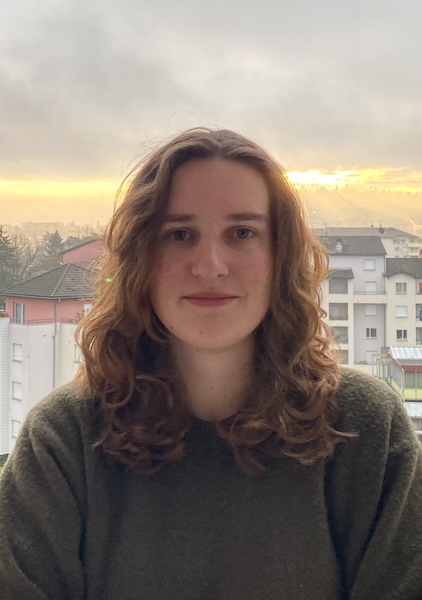
Bertille Morin studied environmental and health sciences at AgroParisTech, a French engineering school, before completing a Master’s degree in Cognitive Science in Paris. Driven by her interest in how psychological processes shape environmental decisions, she joined the Consumer Decision & Sustainable Behavior Lab as a PhD student under the supervision of Tobias Brosch. Her PhD research focuses on understanding how people value biodiversity and what motivates them to engage in pro-biodiversity behaviors. By identifying the psychological and sociodemographic factors that influence biodiversity valuation and engagement, this work aims to develop and test evidence-based strategies to promote behavior change and strengthen public support for biodiversity policy. Outside of work, Bertille enjoys sports such as badminton, hiking, bouldering.
biodiversity valuation and engagement, behavior change



